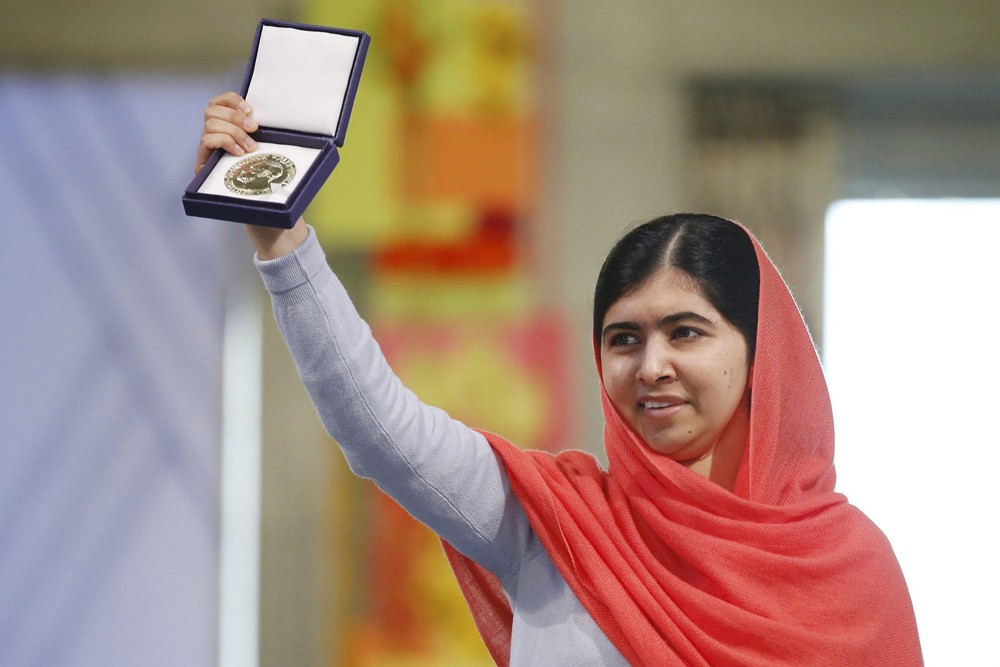
A victim of publicity, Malala remains subjected to hate and derision because her reputation unnerves the forces of status quo

Whenever Malala is in the spotlight -- this time around in a film on her life "He named me Malala" -- although there is no shortage of her admirers, there are also those who exhibit strong antipathy towards the iconic figure. The latter’s response to Malala is what I call as Malala bashing and the present article is an attempt to understand it and respond this uncalled for criticism of Malala. Malala bashing is a conservative response to the anti-status quo demeanor of Malala. In other words, since Malala challenges status quo on various levels, she receives uncalled for criticism of her.
The very first hostility towards Malala comes from conservative values of traditional Pashtun society. Malala undercuts Pashtun male supremacy according to which not only is a man superior to a woman, the latter must be confined to her home except in dire needs, such as visiting a doctor. "A man’s one hand is better than a (complete) woman," goes a Pashto folklore. Similarly, "Allah has made women for home," states another saying. Malala breaches the two important norms of the traditional society. She has not only overturned male supremacy myth by being more popular and successful than men would aspire to but she also keeps on -- in violation of traditional purdah -- appearing on various TV shows.
Secondly, Malala also violates the religious norms of the conservative Pakistani society. Like any other society, Pakistan has its dichotomous division along conservative and liberal lines. Here opposition to Malala cuts across ethnicities and religious and sectarian fraternities. Mind that religion is interpreted in a way as to give men a preponderant position vis a vis women. Old patriarchal arguments find reflection in such religious imagery that Islam likes home for female and only the irreligious women least care about the sanctity of the boundaries of home. The clergy tells people how the Arabic aurat literally means purdah and that the aurat (woman) is purdah and hence men, not women, are meant for the outside business.
Denouncing Malala in the name of religion is the most effective weapon in the hands of retrogressive clergy. If one has to believe the clergy’s notion of purdah then it would mean winding the whole nascent entertainment industry in Pakistan down -- no dramas, no movies and no singing and no news channels. If that cannot happen and which must not happen then targeting Malala for the impossible is only irrational.
Let us not forget that our societal norms and clergy’s response to various issues keep on evolving. Only a few years ago, for most of our clergy appearing on TV was not sanctioned by religion. Similarly, shooting a film was considered as gunah e kabira (major sin). Now the appearance of clergy on TV shows and their videos are routine matters.
Thirdly, Malala comes from a very modest background. A daughter of a schoolteacher, she has neither feudal nor political background. A victim of publicity, Malala remains subjected to hate and derision because her reputation unnerves the duo. Malala is a challenge for the two because she enjoys more prestige at a global level than our feudal lords and politicians or their families would aspire to. The becoming of Benazir Bhutto -- another iconic Pakistani female -- as prime minister had got nothing to do with changing fortune of women in Pakistan because she was the talented daughter of Zulfikar Ali Bhutto.
Fourth, conspiratorial mind is on full display. Thriving on xenophobia, people of this school of thought are unduly suspicious of outside world. Malala is scorned because "she is the agent of the west," conspiracy theory runs so. "Why is the US keen on projecting Malala?" is a question they believe is worth to ask. This question is problematic. First, it treats the US government and American diverse media as one, which is very untrue. One just needs to look in our own case. Is our diverse electronic and print media necessarily on the same page with the government? The answer is an obvious no! Why do we think of the American media and government to be necessarily on the same wavelength given the fact that American society has much respect for the difference of opinion. More, what type of support does the American government provide to Malala save for some high profile meetings including one with Obama. This leaves the question of why Malala was chosen for noble prize? No doubt, noble prize does on occasions require political backing.
Assume that Malala had that backing, why was her case supported? "To spread vulgarity in our society"; "to defame Pakistan"; "to discredit Taliban"; "to defame Islam" -- the litany of allegations runs. Well, when the west has a powerful mass media both electronic and print and the internet and all the required paraphernalia of propaganda machinery then why does it need Malala to do these things? Yes, western media and governments there definitely want to discredit Taliban. So, whenever Malala is mentioned, the brutality of Taliban is also discussed. But discrediting the militants is something that we all -- from government to people -- really want in Pakistan! No need for so much fuss for nothing.
The hysterical rant against Malala speaks of a conservative and paranoid mentality. Breaching peacefully the retrogressive norms of societies for society friendly changes should be appreciated. The act of few who breach anti-progress norms becomes the way of wider society. This is how societies progress. Society friendly changes anchored in peaceful modus operandi are the beacons of our bright future. The pro and anti-Malala discourses take the form of either standing for change or mired in deadlier status quo. Thank you Miss Malala for being the agent of a positive change in the outlook of Pakistani society.